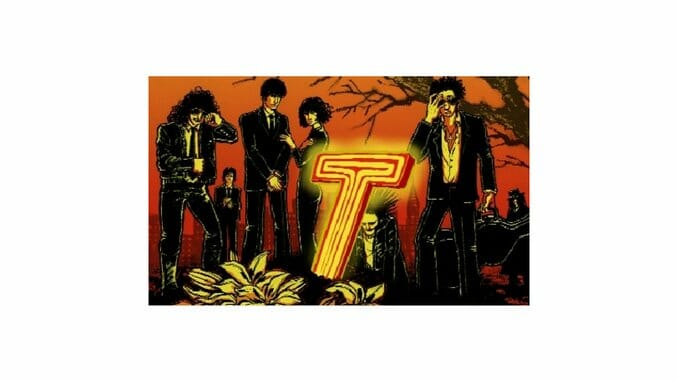Record Store: Minding the Store

Anyone who’s lost countless Saturday afternoons flipping head-down through stinky vinyl or ?ngerprint-spotted jewel cases in search of that rare promo or undetected diamond-in-the-rough understands the enormous divide between the nearby run-of-the-mill chain store and your local music temple. There’s the faceless, Allstate-of?ce-grey joint you might visit on your lunch break because it’s quick and convenient, and then there’s the Hall Of New And Used that’s worthy of your weekend.
As any music geek knows, there are stores where you can pick up the new Beyoncé album, and then there are stores that envelop your mind and soul and overload your senses. For more than two decades, Tower Records’ Sunset Boulevard store in Los Angeles was one such temple, a Hollywood landmark known for its near-riot-inducing in-stores, parking-lot concerts, mobbed midnight sales and trademark murals.
Opened in 1969, it was a place where you might catch Jimmy Page ?ipping through blues discs or Robert Plant thumbing through the 45s; where you could pass regulars like Elton John or celebrities diverse as Bette Davis and Chris Rock in the aisles; where Rivers Cuomo of Weezer (see sidebar) and the Afghan Whigs’ Greg Dulli earned their rent; where Du? McKagan and Slash snuck into the mirror-windowed security booth the night Use Your Illusion I & II were released.
So, understandably, the scene was more than a little melancholy when Tower Sunset petered to an unglamorous end Dec. 21, just a few months after the beleaguered chain announced its impending demise. Like at all the doomed Towers nationwide, the pickings were slim: a crappy corporate-rock CD here, an even lamer R&B CD there. Though things had gotten ugly, longtime manager Todd Meehan couldn’t stay away. Now 40, Meehan began his Tower tenure at 15, and was let go in October, but he just had to be there for the end.
“My wife and I were actually moving to North Carolina that day when something just drew me in,” he says. “The movers were there and I looked at my wife and I said, ‘I know this sounds crazy, but I have to go in, I have to experience this.’ You have to understand, this is where I met my wife, where I met all my friends, where I got my music collection from. And I actually got the last sale of that store’s history … when you think about how many people went through that register, it was kind of cool for me to experience that. But it was real sad. They say nothing lasts forever but, man, I thought that Sunset was going to.”
While record merchants have been on a downward trajectory for several years now, the closure of Tower’s entire ?eet marked a new low. It wasn’t that long ago that stores like Tower Sunset seemed invincible, be they in Hollywood, Calif., or Hollywood, Fla. But, in recent years, the demise of such hipster halls has become an all-too-familiar occurrence. Smaller—but equally beloved—shops like Boogie Records in Toledo, Ohio; Manifest Records in Columbia, S.C.; and Aron’s Records in L.A. have all bitten the dust.
-

-

-

-

-

-

-

-

-

-

-

-

-

-

-

-

-

-

-

-

-

-

-

-

-

-

-

-

-

-

-

-

-

-

-

-

-

-

-

-








































